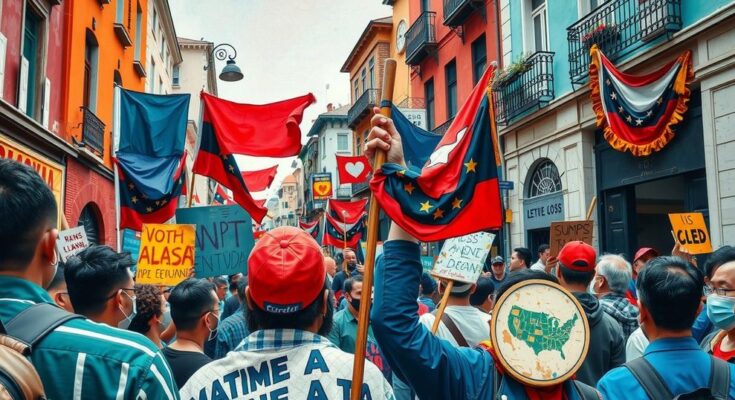Since 2016, large-scale anti-government protests have emerged worldwide, driven by factors such as economic inequality, political repression, and demands for reform. Significant demonstrations include South Korea’s Candlelight protests, Chile’s subway fare protests, India’s farmers’ protests, and Germany’s anti-Semitism protests, each altering social landscapes and response to governmental accountability.
Since 2016, the globe has been the stage for extensive anti-government protests, engaging millions driven by issues such as economic disparity, political repression, corruption, and demands for democratic reforms. This article, drawing upon data from Statista, delineates the largest and most influential protests of recent years.
In South Korea, the Candlelight Demonstrations from 2016 to 2017 represented a pivotal moment in the nation’s democratic evolution. Sparked by a scandal involving then-President Park Geun-hye, who permitted her confidante Choi Soon-sil to unduly influence government affairs, these peaceful protests mobilized millions and ultimately resulted in the president’s impeachment—a historic achievement for South Korean democracy.
In October 2019, Chile experienced the “Estallido Social” (Social Outburst) which originated from a minor subway fare increase in Santiago but swiftly evolved into a monumental uprising. This social movement addressed deep-rooted issues of economic inequality, social injustice, and widespread discontent with the political apparatus, marking a significant chapter in Chile’s contemporary history.
In 2020, India witnessed massive protests by farmers from Punjab, Haryana, and Uttar Pradesh against three new agricultural laws aimed at liberalizing the sector. Concerns over potential corporate exploitation and the erosion of existing support systems for farmers galvanized these protests into a national movement, garnering significant global attention.
The most recent protests occurred in Germany between 2024 and 2025, addressing rising anti-Semitic sentiments and violence. Demonstrators, numbering in the thousands, gathered in Berlin, organized by a coalition of civil society groups, religious entities, and political factions, advocating slogans like “Never Again is Now” and “No Place for Hate.” This grassroots movement spread to cities such as Hamburg, Frankfurt, Munich, Cologne, and Leipzig, showcasing a collective national response.
The world continues to witness significant anti-government protests that reflect societal demand for justice, equality, and accountability. These movements, stemming from various issues, have achieved notable impacts, such as political change in South Korea and immense mobilization in Chile and India. The recent anti-Semitism protests in Germany underscore the ongoing struggle against discrimination, highlighting the need for societal unity against hatred and injustice. Collectively, these events affirm the global commitment to democratic ideals and human rights.
Original Source: globalsouthworld.com




